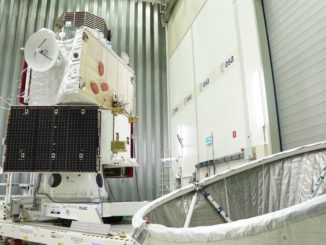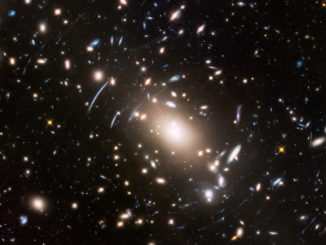
European Space Agency

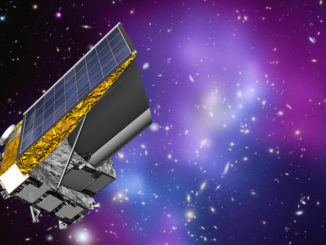
Detector trouble expected to delay ESA’s Euclid dark energy mission
Technical problems discovered during ground testing of U.S.-built detectors for the European Space Agency’s Euclid astronomy mission will delay the completion of the telescope’s scientific payload, jeopardising the observatory’s 2020 launch target, the head of NASA’s astrophysics division said last week.
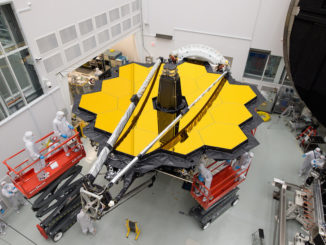
JWST launch slips to early 2019
Extra testing of the James Webb Space Telescope and delays in assembling the powerful observatory will push back the $10 billion mission’s launch by at least six months to early 2019, officials announced last week as the telescope successfully completed an extensive performance test inside a cryogenic vacuum chamber in Houston.
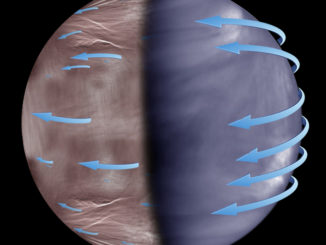


Sneak peek of Gaia’s sky in colour
While surveying the positions of over a billion stars, ESA’s Gaia mission is also measuring their colour, a key diagnostic to study the physical properties of stars. A new image provides a preview of Gaia’s first full-colour all-sky map, which will be unleashed in its highest resolution with the next data release in 2018.
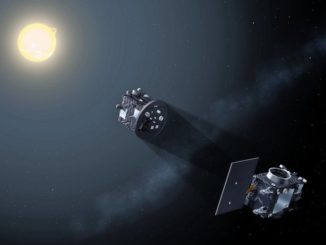
Pioneering ESA mission aims to create artificial solar eclipses
As skywatchers and scientists converge on a transcontinental band of totality for Monday’s solar eclipse in the United States, engineers in Europe are building a unique pair of satellites to create artificial eclipses lasting for hours — a feat that that could be a boon for solar physicists but will escape the view of Earth-bound spectators.
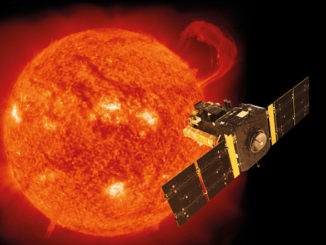

Pioneering probe for gravitational wave observatory ends mission
The European Space Agency’s LISA Pathfinder spacecraft, now sailing around the sun on a trajectory away from Earth, was deactivated Tuesday after a nearly 18-month mission testing previously-untried lasers, vacuum enclosures, exotic gold-platinum cubes and micro-thrusters needed for a trio of gravitational wave observatories set for launch in the 2030s.
